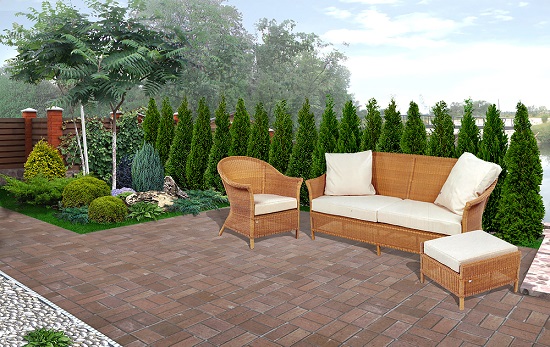
People will do anything to reduce the noise and traffic noise in their neighborhoods and around them. One way to reduce noise is clever landscaping Charleston SC. This is a great way to lower the noise level in residential and commercial properties. This can be done by using trees, shrubs and hedges as well as other natural sound barriers.
- How can you make it happen?
- These options are available?
Although it won’t completely block out the noise, landscaping art can make it bearable. We’ll be talking about landscaping Charleston SC techniques that can absorb loud sounds.
Evergreen Trees Are A Go
Did you know that all parts of a plant can absorb sound? Even the bark and leaves! Experts recommend trees with thick, lush leaves and numerous branches to delay sounds.
Evergreen trees are a good choice because their leaves don’t change with the seasons.
Tall Hedges
Strong and tall hedges can block noise from busy streets or roads. Hedge plants can be more difficult to maintain than trees and take longer to grow.
Hedges take time to develop and become strong barriers. It’s worth it.
You can plant different shapes and sizes of shrubs
For those looking for low-maintenance noise cancellation, hardy native shrubs are a good choice. For the best shrubs for your climate, talk to your local nursery.
Make some white noise
A running fountain or water feature can provide tranquility for homeowners and businesses who want to create outdoor spaces. It will drown out any other noises and irritants.
Choose a privacy fence
A fence or wall can be built around your property’s perimeter. While walls and fences made of wood, bricks, concrete bricks, or other materials may reduce noise, it will not eliminate it entirely. These materials do not absorb sound but reflect it back into the environment. The sound will still be heard.
These are just some of the options available to reduce noise levels by smart landscaping. These options are both cost-effective as well as effective. We will now examine noise reduction concerns that landscaping may face.
Noise can be reduced by the beauty of the natural landscape and some hardscaping, too.
Landscaping to Block Noisy Sound
Trees should be tall and strong enough.
North Carolina State University believes large trees can reduce noise. This assumes that the trees are sufficiently tall and dense.
Many people don’t have the money or time to build thick walls of trees to shield them from noise.
It is important to plant your plants close to the water source.
The closer trees or hedges are to the source, the better. It won’t matter if you place barriers too far from the source.
It is unlikely that a landscape wall placed 200 feet away from a noise source, but close to a residence, will make any difference.
They should be able to block the line that runs between the noise source and receiver or noise source. Research by the University of Nebraska-Lincoln shows that natural sound barriers should also block sight between receivers and noise sources.
It will not serve its purpose if the barrier is too thin, too thick, or too uneven. Any opening can be penetrated by sound waves, regardless of its size.
Experts believe this is where the “out-of-sight, out of mind” concept may be found. The visual barrier of the trees reduces noise perception, making it less perceivable.
Before you make the investment in landscaping and lawn care, and all that comes with it, consider other options.
Sound Walls: The Success Story
Although walls were mentioned previously, sound walls aren’t made of concrete or wooden. It is made of special absorptive material that absorbs sound and diffuses it, rather than reflecting it.
This is because the environment is very quiet and reflects very little noise. You can still hear sound through walls.
Outdoor design for sound barriers offer many benefits:
- Landscape noise reduction will be less than an engineered soundwall of the same length and height.
- Sound walls are not like trees or hedges. They are different from other structures like trees and hedges.
- The noise panels absorb sound and do not reflect it.
- You can easily customize the sound-absorbing panels to fit into a variety building shapes and designs.
- You can find them in many colors and styles.
- Each system can be tailored to meet the specific needs of each project.
- It is durable and can last a long time
- It’s a cost-effective solution that works
- It is good for wildlife and the environment.
- Employees will feel more relaxed and peaceful.
Noise can have a negative effect on our mental and bodily well-being. A calmer environment can reduce stress, hearing impairments, blood pressure, and other problems. All of these can be made worse by continuous exposure to loud sounds.
Call Porter Hayes Landscaping LLC if you need a landscaping design that can help reduce noise and provide you with privacy.
Porter Hayes Landscaping LLC
Charleston, SC 29419
(843) 532-3270
http://www.porterhayeslandscaping.com/
No comments:
Post a Comment